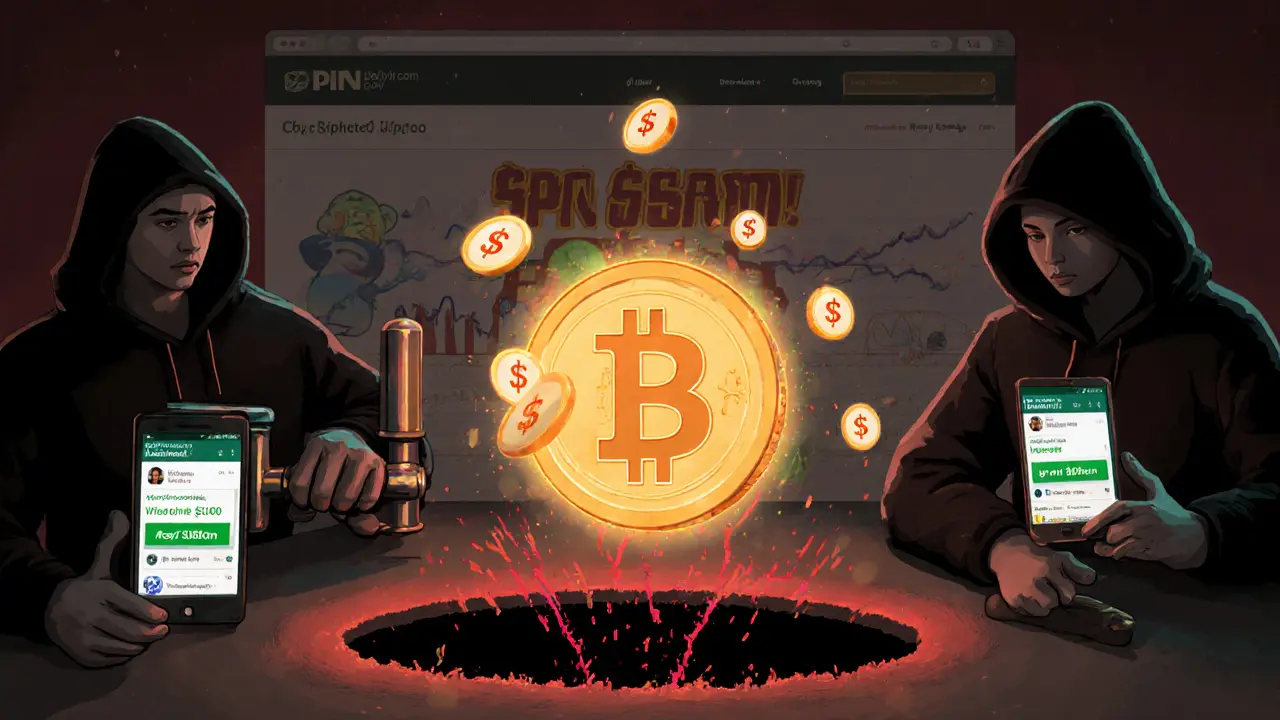Fake Crypto Platform: How to Spot Scams and Avoid Losses
When you hear about a new fake crypto platform, a deceptive website or app pretending to be a legitimate exchange, wallet, or DeFi project. Also known as crypto scam, it often looks professional—complete with whitepapers, fake testimonials, and social media buzz—but has no real team, no audits, and no intention of delivering anything. These aren’t just sketchy websites. They’re engineered to steal your funds before vanishing. And they’re everywhere.
Look at what’s happening right now. Projects like CHIHUA, a token with zero supply, no trading activity, and no team, are being pushed as airdrops. People get excited about free tokens, click the link, connect their wallet—and suddenly their crypto is gone. Same with SkullSwap, a nearly dead Fantom DEX with no liquidity and zero community. It’s not just inactive—it’s a trap. Then there’s Kalata Protocol, a DeFi farm with no team, no audits, and shrinking liquidity. These aren’t bugs. They’re features of a scam. Fake crypto platforms rely on one thing: your hope. They promise high yields, exclusive access, or free tokens. But behind the glitter? Silence.
Real platforms don’t hide. They publish audits. They have public teams. They answer questions. Fake ones do the opposite. They use names that sound like real projects—Blockfinex, Sphynx Labs, Levana Protocol—to trick you into thinking they’re legit. But check the trading volume. Look for zero activity. See if the contract can be changed by a single wallet. If the answer is yes, walk away. Even if it’s on a popular chain like BSC or Ethereum, it doesn’t mean it’s safe. The blockchain doesn’t care if you trust it. It only follows code. And bad code doesn’t care about your money.
And don’t get fooled by airdrops. The SUNI airdrop, offering 4,118 tokens with no market value or utility—it’s not a gift. It’s a fishing line. Claiming it might cost you more than the tokens are worth. Same with Gamestarter $GAME, where no official airdrop exists. Scammers copy names, make fake websites, and use Discord bots to mimic real teams. You think you’re getting free crypto. You’re actually handing over your private key.
There’s no magic trick to avoiding fake crypto platforms. Just two habits: check everything, and assume it’s fake until proven real. Look up the project on CoinGecko or CoinMarketCap—not the project’s own site. Search for audits on CertiK or Hacken. Check the team’s LinkedIn. If they’re anonymous, that’s not privacy—it’s a warning. If the website has broken links, poor grammar, or no GitHub, it’s a red flag. And if someone messages you first with a ‘limited-time offer’? Block them. Then report them.
What follows are real reviews of platforms that looked good but turned out to be dangerous. You’ll see how SkullSwap, Blockfinex, NiHao, and others fooled people—and why they failed. You’ll learn what to look for before you click ‘connect wallet.’ This isn’t theory. It’s a list of what actually went wrong. And how you can make sure it doesn’t happen to you.
Spin Crypto Exchange Review: Is It Legit or a Scam?
Spin Crypto Exchange is not a legitimate platform-it's a scam. No trusted sources list it, and victims report losing thousands after fake profits turn to nothing. Learn how the scam works and which real exchanges to use instead.
